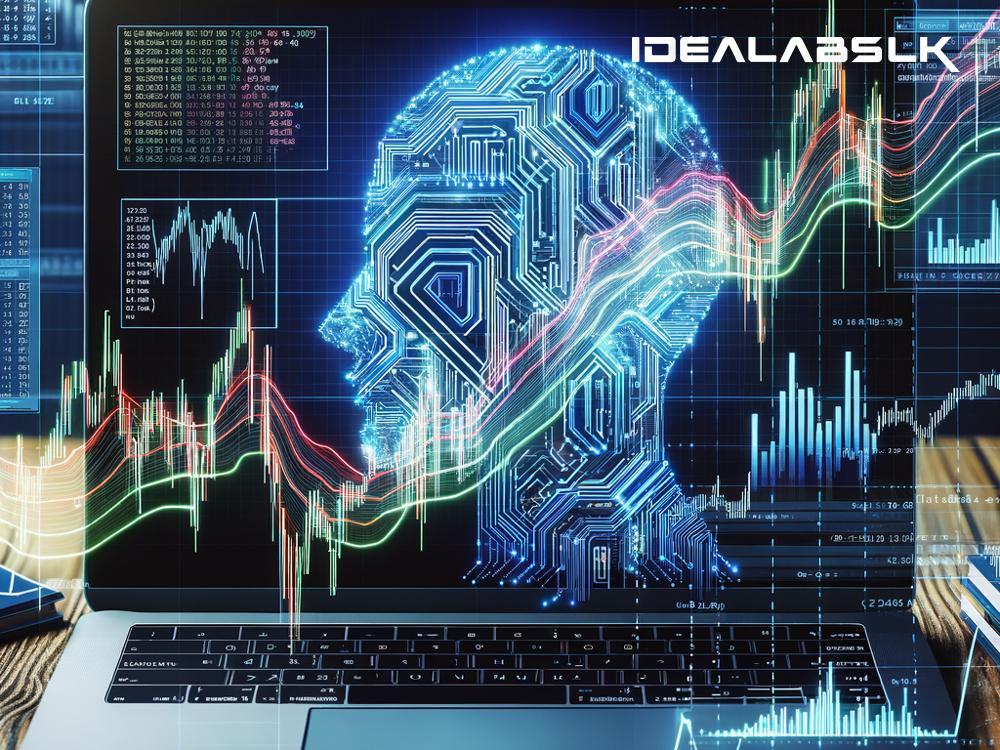AI in Trading: How AI-Powered Algorithms Can Optimize Market Timing
In the world of stock trading, timing is everything. Whether you're buying or selling stocks, the moment you decide to make your move can mean the difference between profit and loss. But how do you choose the right moment? For years, traders have relied on a combination of experience, intuition, and complex mathematical models. However, the rise of artificial intelligence (AI) in trading is revolutionizing how we approach market timing, offering new opportunities to optimize trading strategies like never before.
Understanding AI in Trading
At its core, AI refers to machines or software that can perform tasks that typically require human intelligence. This includes learning from data, making decisions, and solving problems. In the trading world, AI-powered algorithms can analyze vast amounts of market data at speeds and depths impossible for human traders. They can detect patterns, predict market trends, and execute trades at optimal times, all in a fraction of a second.
The Power of AI-Powered Algorithms in Market Timing
One of the key benefits of using AI in trading is its ability to enhance market timing strategies. Market timing involves predicting the future direction of the market or a particular stock and making trading decisions based on that prediction. It's a challenging task, given the market's complex and often unpredictable nature. However, AI algorithms excel in this area for several reasons:
High-Speed Data Analysis
AI algorithms can process and analyze data at an unprecedented speed. They can sift through years of market data, news articles, financial reports, and even social media posts to identify trends and correlations that may impact stock prices. This comprehensive and rapid analysis allows traders to make informed decisions quickly, a crucial advantage in the fast-paced trading environment.
Pattern Recognition
Humans are naturally good at recognizing patterns, but our capabilities are limited, especially when dealing with complex data sets. AI algorithms, on the other hand, excel at identifying intricate patterns in vast amounts of data. This ability allows them to forecast future market movements with a higher degree of accuracy, thus improving the timing of trades.
Emotionless Decision-Making
Unlike human traders, AI systems are not influenced by emotions. Fear, greed, and hope can significantly impact trading decisions, often leading to errors in judgment. AI algorithms make decisions based solely on data analysis, resulting in more rational and consistent trading actions.
Continuous Learning
AI systems are designed to learn from their successes and failures. Over time, they refine their algorithms based on outcomes, improving their predictive capabilities and, consequently, their ability to time the market effectively. This continuous learning process means that AI-powered trading systems become increasingly smarter and more efficient.
Risk Management
Finally, AI can enhance market timing by improving risk management. By accurately predicting market downturns, AI algorithms can help traders reduce their losses. Similarly, by identifying potentially lucrative trends early, they can maximize profits. This balance between risk and reward is crucial for long-term trading success.
Real-World Applications and Success Stories
Several leading financial institutions and hedge funds have already adopted AI-powered trading algorithms with remarkable success. For example, quantitative hedge funds, which rely heavily on AI and data analysis, have consistently outperformed their traditional counterparts in recent years. While most of these institutions keep their AI strategies under wraps, the underlying principle is clear: AI can significantly optimize market timing, leading to better trading outcomes.
Conclusion
The integration of AI into trading is not just a passing trend; it's a fundamental shift that's reshaping the industry. By leveraging the power of AI-powered algorithms, traders can optimize market timing, making more informed decisions, minimizing risks, and maximizing profits. As technology continues to evolve, we can expect AI to play an even more prominent role in trading, opening up new opportunities and challenges for traders around the world.
Whether you're a seasoned trader or new to the stock market, understanding and embracing the potential of AI in trading could be your key to success in this digital age. The future of trading is here, and it is powered by artificial intelligence.

